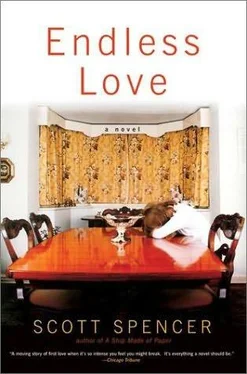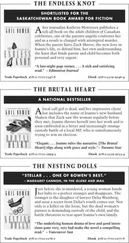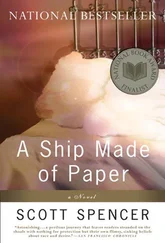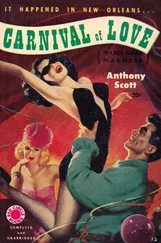I dropped my suitcase onto the pale green rug and sat on the sofa. “Well,” I said, “I see you’ve got the same old cat.” It was the punchline to an old family joke—the little boy who runs away from home and returns before anyone notices he’d left.
“Would you like to see your room?” Rose asked. While I was in Rockville she had appointed herself the guardian of my room. Sometimes, as a way of saying goodbye, she’d said, “Your room is waiting for you, David.” When they gave the apartment a paint job Rose made certain that the pale blue matched the original color without the slightest variation. When the painters left, Rose took color snapshots of the whole apartment and three of my room and delivered them to me at Rockville. Though I never mentioned the pictures to her—her gesture struck me as somehow out of character, too explicit—those color pictures had survived the steady attrition of my belongings and were now at my feet in the tan suitcase.
“May as well,” I said.
It’s the same. It was the backdrop of a recurring dream. It was as if the same air I had left behind still filled the little square chamber, waiting for me to please breathe it again. This was beyond preservation—the room had been embalmed. The bed was still covered by a copper corduroy spread. There were still only two pictures on the wall, both ripped from books. One of Ty Cobb, demonstrating his open grip, taken from The Encyclopedia of Baseball, and another of Monk Eastman, the notorious Jewish gangster, razored from a book called The Gangs of New York. The wooden floors were painted and waxed and, that night, when I turned on the lights, they would dully reflect the electric glare. There was the red and green braided rug and the white dresser, the bowl-shaped glass cover over the ceiling light, the three-legged blond wood desk, the plum-colored coffee mug filled with pens and pencils. My bookcase was still intact, holding boyhood books about prehistoric animals and astronomy, the novels of John R. Tunis as well as the worthy books my parents had given me on holidays and which were unread—though I’d opened each page by page so they wouldn’t look unappreciated.
“My God,” I said, in not much more than a whisper, but we were so quiet and so uncomfortably conscious of one another that I might as well have shouted it.
“Recognize it?” said Rose, with a brief nervous laugh. “We wanted it to be just like you remembered.”
“It is,” I said, and impulsively took her hand and squeezed it. It was the first time we’d touched since leaving Rockville and I could tell she didn’t want me to let go.
Arthur opened the narrow closet and ran his hand over the empty wire hangers, an innkeeper’s gesture.
“Plenty of room,” he said.
Obligingly, I looked at the closet and nodded. Toward the side were some of my old clothes.
Rose was gazing around the room and it looked as if she’d suddenly regretted keeping it so frozen in time. Yet how to change it? What would that have meant? What would it have made them?
“Do you like it like this?” she asked, softly.
“Yes. It’s just like it was. I really feel like I’m home.”
“You are home,” said Arthur, huskily.
And then, when we least needed it, an enormous silence descended. I sat on the edge of my bed and waited for what I hoped was a polite interval before saying, “I guess I’d like to lie down for a while.”
My parents exchanged quick glances, but not nimbly enough to escape detection, like old illusionists helplessly exposing the rigged banality of their tricks. They were regretful not to have planned something definite for my homecoming. But who could they have asked? There was no family to speak of.
“You’re not hungry?” said Arthur.
“I couldn’t even look at food.”
“Maybe a drink.” Arthur checked his watch. Two o’clock. An indecent time for alcohol. But it was Saturday and certainly an occasion.
“No. I get drunk too easy.”
“We stock other things besides booze,” said Rose, smiling and folding her arms.
“I’m just going to rest.”
“Well,” she said. “OK.” Her voice trailed off but her smile remained perfectly firm.
“Well,” said Arthur, throwing his hands before him and then clapping them together, like someone making a good choice, “you rest up.”
As they left, Rose said, “Should we wake you for dinner?”
“No problem,” I said, “I’m sure I won’t sleep.”
“Open or closed?” said Arthur, touching the door.
I pretended to think about it. “Closed.”
The door closed with a soft click; finally I was on my own. I listened to their footsteps go away and then I was up and across the room. I opened my old desk drawer. It was filled with letters. I grabbed them all and leafed through them, first quickly and then, with mounting disappointment, very slowly. All of the letters were addressed to me but none were the ones I wanted—they were birthday greetings from years before, Christmas cards, letters from a South Korean pen pal I had kept up with until my parents asked me to stop, letters from my grandfather.
I’d asked my parents, long ago, if they’d kept the letters from Jade. These letters had been submitted to the court during my hearing and had actually been officially marked as evidence. They’d helped keep me out of jail, helped to prove the extraordinary emotional pressures I was under. But what had happened to them afterwards?
Once more I flipped through the letters, with a wrist-and- thumb dexterity developed trading baseball cards. It would have been too easy, too kind to find them straight off. They must be somewhere else. I opened my dresser. Top drawer: three new pairs of Esquire socks and a couple unopened packets of Fruit of the Loom underpants. Second drawer: an old white shirt back from the laundry, folded and bound by a strip of heavy turquoise paper. Third drawer: empty. The important thing is to guard against jumping to conclusions. Not to think ahead of myself. Quietly, though my hands would not quite behave, I closed the drawers and went to the window.
I sat on the sill, moved the brown curtain to the side, and like a thief, a spy, I looked down at the street. The rain had stopped. A black teenager was walking by with a steel, four- pronged comb stuck in the back of his helmet-like hairdo. In a strange way, I had forgotten about black people. All the staff at Rockville were white and the only black patient who had been there during my stay was a girl named Sonia Frazier, whose father taught logic at Northwestern. Sonia had twig-like scars starting at her wrist and going more than halfway up her arm from countless suicide attempts. Failed suicides suffered a generally low status among the other patients—they were not considered serious people—but Sonia overcame this by not speaking to anyone about anything. She sometimes played the guitar and one day, quite unexpectedly, she sang English folk songs for an hour. By the time she was finished nearly all of Rockville had gathered into the Common Ground to hear her soft, penetrating voice. I admired her remove and guessed that she too wanted her solitude so she might savor secret memories and irrevocable decisions, and whenever we met I nodded at her, as if we were allies in a secret spiritual war. Sometimes she returned my sign. A couple of months into her stay, her parents withdrew her from Rockville. I happened to be crossing the main entranceway as the three of them left, each carrying two large plaid suitcases, each looking determined and scared. I went to her side, touched her on the shoulder, and said, “I think you’re a great person.”
I sat at my window now in a state of terror and the terror would not recede. I stared down at Ellis Avenue until it was blurry. I simply could not imagine setting foot on the street below. Two professorial-looking men walked by, one swinging an unopened black umbrella, the other with a raincoat hooked onto a finger and slung over his shoulder, like a TV star. People and their lives. People and their pictures of themselves. It was astounding and it gave me motion sickness to think of it. How could I ever find a place among them and how could I learn to want to? I had nothing to say to anyone; everything I cared about was exclusive. I thought of suddenly braving it, of just going outside and asking the first person I saw—what? Anything. Directions. To the Museum of Science and Industry. Yet what a poor choice, even in fantasy. It was in that very museum that Jade and I had spent our first afternoon alone, in that palace of progress with its towering lobby and the genuine World War I fighter planes hanging from the ceiling on steel cables. Holding hands—it was really more like touching fingers—we had ridden the jolting trolley through the replica coal mine and then, later, spoke to each other in whispers, each facing a scientifically molded sheet of Plexiglas separated by some two hundred yards. Our murmurs had carried with miraculous intimacy and fidelity: it sounded as if we whispered to each other in bed, though we did not know that yet. Finally, we strolled through a gigantic model of the human heart, in the company of twenty tee-shirted children from Camp Wigwam. We walked slowly through the ventricles, listening to the omnipresent thumping that came through a hidden speaker, touching the modeled veins. Jade, in whose house medical gossip was detailed and incessant, presented one of her father’s far-flung theories about the Healthy Heart while I, my mouth so parched that I dared not speak, marveled at our journey through affection’s symbolic locus and felt an overwhelming jolt of pure consciousness—I knew from the start that I loved her and knew, as well, that I would never fall back from that love, never try, never want to.
Читать дальше












